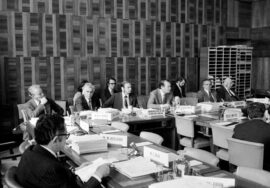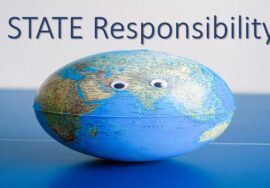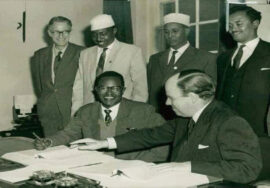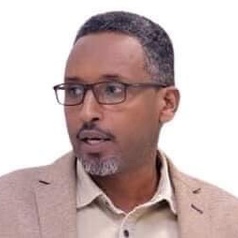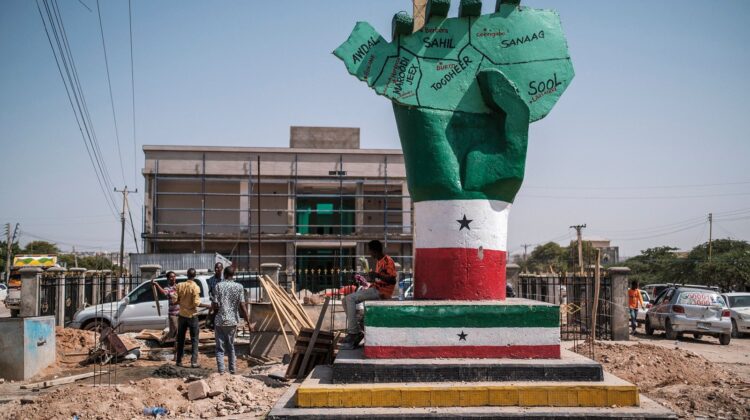
Somaliland: Struggling with its past and present
Somaliland: Struggling with its past and present
Somaliland’s historical misguided and illegal unification with failed state trusteeship Italian Somalia, leading to overshadowed Somaliland’s positive example of self-introduced democracy and successful elections. However, Somaliland’s intricate nature arises from its blend of Western democratic and traditional clan systems.
Somaliland has had a complex and unpredictable historical journey of 141 years:
Establishment: Somaliland Established in 1884 as a British protectorate.
Independence: Gained independence on 26th June 1960, becoming the State of Somaliland.
Unification: Five days later, on July 1, 1960, it united with the former Italian Somalia to form the Somali Republic.
The modern of the Republic of Somaliland State was created for international strategic:
1884-1960 British established to control trade routes and securing access to the Gulf of Aden.
1960-1990 Union Failed-unification Pan-Somali establishment to include those under British Somaliland, Italian Somalia, French Djibouti, and Ethiopian Hawd Reserve Area as well as Northeastern Kenya. That alleged union led to the most significant humanitarian disaster and conflict in the modern Horn of Africa.
1991 Somaliland reverted to original status of 1884, cooperating with UK-USA as well as UAE to make Berbera the best route of Gulf Aden.
1992 Somalia failed state return to original status before 1880 of “No man’s land” still under the influence of international communities in present time the United Nation as it was under the kingdom of (Zanzibar’s & Omani Influence).
2025: The Republic of Somaliland has been re-recognised for the past, present, and future in the name of global peace.
Somaliland independently established its own legal system and a parliamentary democracy. A 2010 election, described as Africa’s most democratic by historian Gerard Prunier, was held (Prunier 2010: 32).
Regardless, how are we to view the democracy that has emerged in Somaliland? Does this reflect the true desires of the people, which is arguably the core idea of democracy? Or is it a hybrid model, unduly empowering and influencing society’s elders through traditional conservative values?
What democratic conditions have Somaliland achieved?
Somaliland has implemented various processes to foster a more sustainable democracy since 1991. In his work on Somaliland’s democracy, Mark Bradbury highlights post-civil war reconciliation, a constitutional government, and a functioning public sector, contributing to state infrastructure. Crucially, this process facilitated demobilisation (demilitarisation) and three democratic elections (Bradbury 2008: 4). Somaliland has established a constitution, a multi-party system with elections, and a democratically elected government providing security for its people. Despite a lack of international recognition, Somaliland collects taxes and fees and prints its own money (ibid.).
In his 2008 book *Becoming Somaliland*, Bradbury contends that Somaliland’s council of elders stems from its traditional, consensus-driven pastoralist culture. Traditionally, Somali clans relied on councils of elders to make key decisions on economic matters, warfare, and conflict resolution. These councils of elders (shir) deliberate until a consensus is achieved. Traditionally, a guurti was a special committee, a supreme authority convened to resolve disputes; today, it also denotes one of Somaliland’s two parliamentary chambers. Clan representatives for councils and the guurti were traditionally chosen based on personal attributes. But nevertheless chosen from the clan to ensure the clan’s interest (Bradbury 2008: 16-17).
This tradition is now influencing the design of the Somaliland parliament. The democratic nature of this is an interesting point to consider. Furthermore, what democratic principles and standards are used to evaluate this system’s democracy? Does the council of elders accurately represent the traditional and popular ways of governing and making decisions? Is there a conflict between these traditions and democracy?
Clan membership is paramount in Somaliland, granting access to power and opportunities, and forming the most prevalent organizational structure in rural areas (Birk 2012: 45). The clans and council of elders act as an alternative courtroom, resolving conflicts independently. According to Somaliland experts Emil Birk and Joakim Gundel, the state’s influence is limited to urban areas, leaving rural regions under clan and traditional control (Birk 2012: 45). According to Birk, the dual governance system is comprised of a “patrimonial hegemony” (clan, guurti, rural) and a “post-colonial hegemony” (House of Representatives, city). Being Somalilander means having individual rights as a citizen but also being subject to clan collectivism. Successful citizenship requires manoeuvring within both power structures (Birk 2012: 46).
Colonial heritage
Somaliland, similarly to most of Africa, underwent European colonial rule from the late 1800s to 1960, when African decolonisation commenced.
Somaliland’s bicameral legislature draws parallels to those of the US and UK, yet retains a special mix of ancient and contemporary practices.
Caught up inside the abyss Somalia of failed state
Somaliland faces daily difficulties due to its lack of international recognition. Despite its formal status as a part of Somalia, this nation’s international relations differ considerably. The emphasis in Somalia’s relationship is on security and counterterrorism, while the focus with Somaliland is on development and institution building.
Somaliland must adapt to its circumstances until the international community demonstrates a political desire for change.
Somaliland’s improved circumstances enable a shift from emergency and humanitarian aid to sustainable development aid for development and donor agencies. However, Somaliland’s lack of recognition hinders the development of sustainable trade relations and economic ties with other nations.
Somaliland’s government openly and consistently promotes its desire for recognition.
This time, the colonial power is arguably the world’s most unsuccessful state, while Somaliland is the progressive reformer. Somaliland Confined and excluded!



